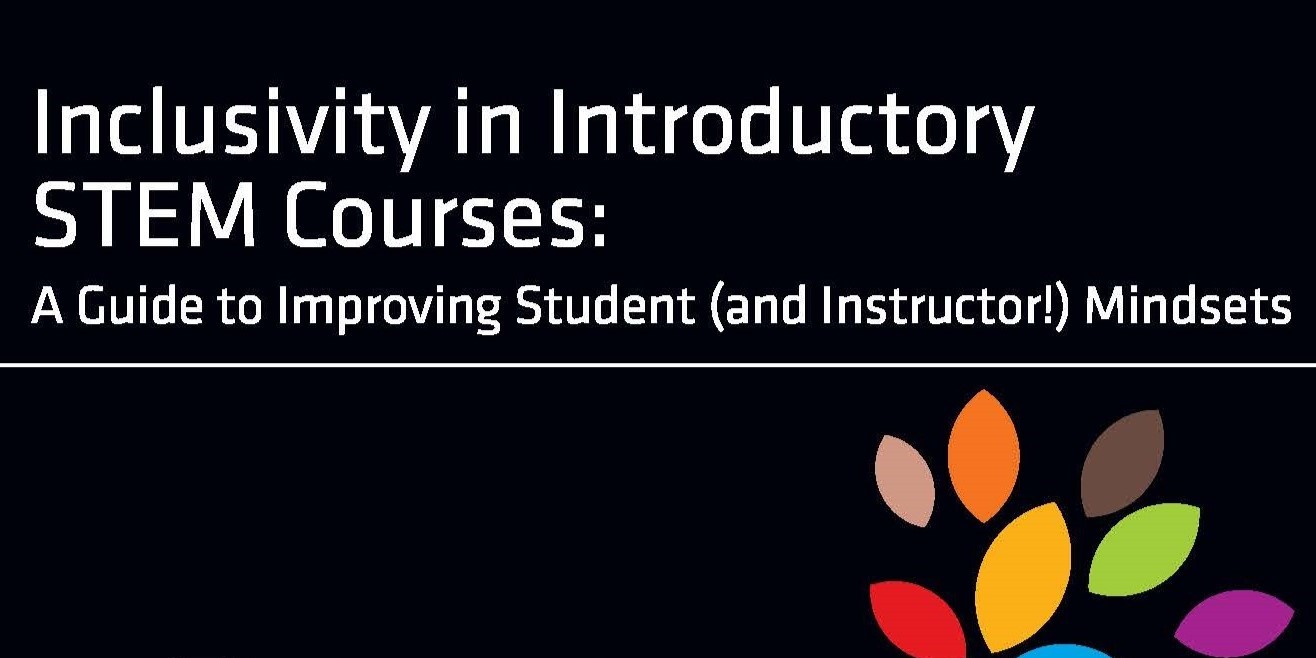Small Strategies for Big Impact on Belonging, Resilience, Success

Research Corporation for Science Advancement has published a new book, Inclusivity in Introductory STEM Courses: A Guide to Improving Student (and Instructor!) Mindsets, which grew out of a Cottrell Scholar Collaborative project to help create more inclusive STEM learning spaces.
The book is authored by Cottrell Scholar 2018 Lou Charkoudian, Haverford College; CS 2014 Carla Fröhlich, North Carolina State University; CS 2003 Mike Hildreth, University of Notre Dame; CS 2019 Kerstin Perez, Massachusetts Institute of Technology, Columbia University; CS 2019 Shahir Rizk, Indiana University South Bend; CS 2010 Jennifer Ross, Syracuse University; CS 1995 Tom Solomon, Bucknell University; and CS 2019 Kana Takematsu, Bowdoin College. It also includes summaries of three 2022 mini-workshops led by Mica Estrada, University of California, San Francisco; Chandralekha Singh, University of Pittsburgh; and Terrell Morton, University of Missouri.
The workshops were given as part of an RCSA-supported Cottrell Scholar Collaborative project to present a series of free, interactive sessions on “Inclusivity in Introductory STEM Courses’’ with FLAMENet, a national network of science faculty, psychologists, and education researchers working to develop and research interventions to promote resilience and tenacity among college-level STEM students.
The book is a compilation of the specific approaches discussed in the mini-workshops, as well as a collection of contributions from individual Cottrell Scholars about various interventions they have implemented at their institutions. With particular emphasis on fostering a sense of belonging among students who have been historically excluded from STEM disciplines, the book offers different strategies for building a positive culture of inclusivity in academic settings and for changing perceptions about the value of struggle in the learning process.
The book includes brief exercises that target student and instructor mindsets about learning in the face of failure, the connection between coursework and personal aspirations, and students' sense of belonging within an educational community. With easy-to-follow methods and example worksheets that can be tailored to fit into any class, the book offers a variety of exercises that can have a positive impact on students’ self-esteem, identity development, educational achievement, and their likelihood for career success.
"As physical science educators, we realize there are strong social pressures pushing some students away from our disciplines of physics, astronomy and chemistry,” the authors say in their introduction. “Not every intervention will work for every instructor or every class, but changes for the better are made one step at a time.”
Inclusivity in Introductory STEM Courses: A Guide to Improving Student (and Instructor!) Mindsets is published by RCSA, and available for download on RCSA’s website or in paperback. Contact RCSA to request a copy.






